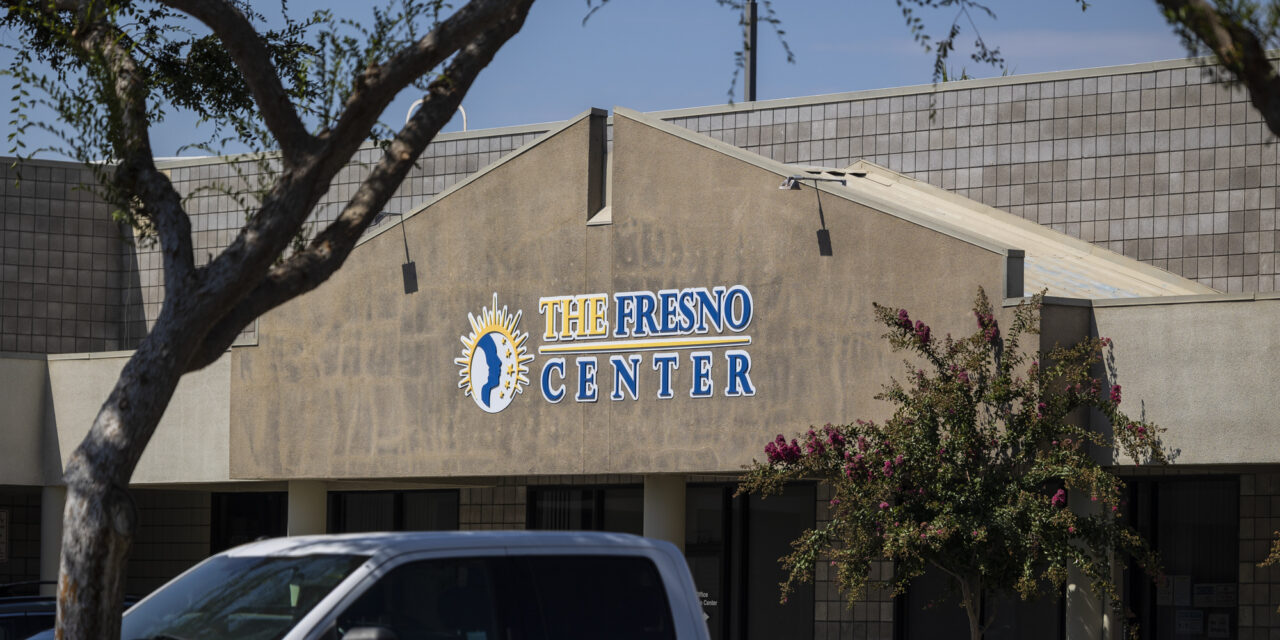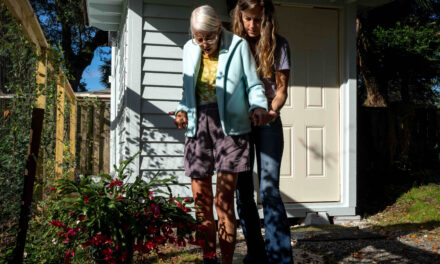Just after he was detained, Kunnea died by suicide. Chantha was in shackles when he attended Kunnea’s viewing. He wasn’t even allowed to stay in the country long enough to attend her funeral, which took place several days later.
“He took it really hard. He was able to go to her viewing for literally 30 minutes and it broke my heart to see him drop down to his knees and just bawl,” Nancy said.
Lawyers for the family have been working to bring him back home for the past seven years.
Rocked by these losses, Nancy planned a trip to Cambodia the following year. She wanted to visit sacred religious sites, check on her brother and ground herself. While there, she experienced something profound, what she calls an “awakening.”
“I completely changed. I just completely prioritized my life and filtered out what wasn’t important and what was,” she said.
When she returned to Fresno, she leaned into her faith, spending time at the temple meditating and praying. It helped her feel spiritually connected to her ancestors and able to accept what had happened.
“I felt like I had a huge role in bringing the family together in a sense, spiritually,” she said. “And if I don’t do that, I feel like we’re gonna fall apart again.”
But Nancy’s faith was put to the test once again. Just a few years ago, her oldest sister died from complications related to alcohol, a way of coping with all the other losses.
Culturally responsive mental health care could help
Throughout her grief and loss, Nancy Meas continues to turn to her religion and culture for comfort. She saw a therapist when Kunnea died, but didn’t feel the need to continue sessions. She said if the care focused more specifically on the experience of Cambodian Americans, it might have been different. She would even be open to getting her parents to try it too.
There is a model for that type of culturally responsive care in Fresno already. But it’s geared toward the Hmong population, many of whom are older and don’t like direct questions.

“It’s almost like a dance,” said Ze Vang, the clinical director at The Fresno Center whose mission is to offer health and immigration services to the Southeast Asian community. “They come in, we have to talk about, ‘So what did you do today?’ That type of thing, and they’re like, ‘Oh nothing.’ And we have to kind of dance around what they do and how they’re feeling. And then, 10 minutes into the session, they finally say, ‘Oh, I feel really depressed.’”
The Fresno Center’s success with the Hmong community started with destigmatizing mental health, a huge obstacle to accessing mental health care.




